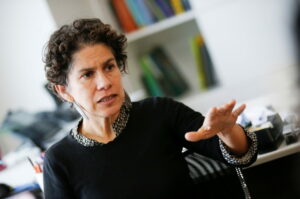Women Lead Talks on Tough Climate Change Topic: Reparations

Men usually outnumber and outrank women negotiators in climate talks, except when it comes to global warming’s thorniest diplomatic issue this year — reparations for climate disasters.
The issue of polluting nations paying vulnerable countries is handed over to women, who got the issue on the agenda after 30 years. Whether this year’s United Nations climate talks in Egypt succeed or fail mostly will come down to the issue called loss and damage in international negotiations, officials and experts say. It’s an issue that intertwines equity and economics, balancing the needs of those hurt and those who would pay.
Nearly all of the key players are women and they and others say better gender representation could yield better results.
“I think what we need at this crucial time is empathy … We need to think about our world in the sense of taking care of our world,” said Chilean Environment Minister Maisa Rojas. “Maybe culturally, historically, they are seen as feminine values.”
Rojas, a climate scientist, and Germany special climate envoy Jennifer Morgan engineered a last-minute deal that got the issue of loss and damage on the agenda for the first time in 27 climate summits.
Now that it’s on the agenda, the top people trying to get something meaningful done are women. And that provides hope, a top United Nations official said.
“At times, at least in negotiations, women are able to find a pathway forward where maybe high testosterone does not yield itself well to that,” United Nations Environment Programme Director Inger Andersen said in an interview with The Associated Press.
Milagros De Camps, vice minister of international cooperation for the Dominican Republic, said women simply get better results.
“There are better results because women tend to be better in conflict resolution,” De Camps said. “They tend to be better in terms of reaching agreements, better in developing stricter policies that tend to be more sustainable.”